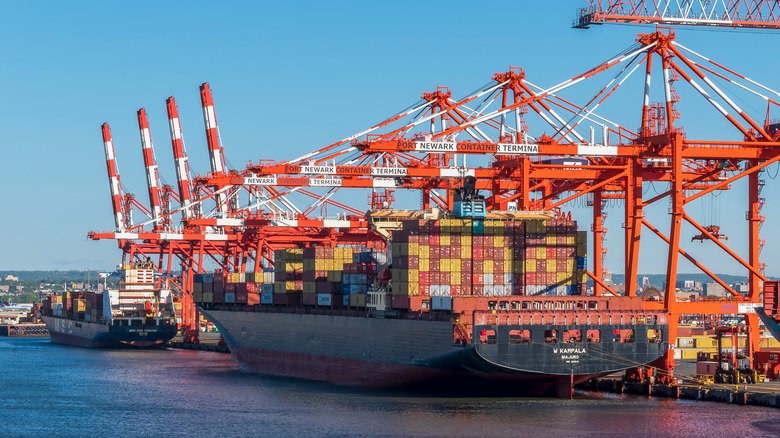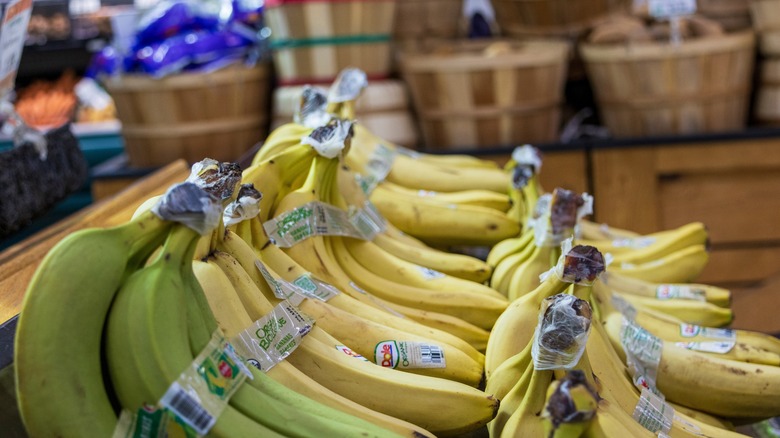Here's How The Dockworkers' Strike Might Affect Your Grocery Shopping
For the first time since 1977, the International Longshoremen's Association has gone on strike, shutting down 36 ports across the country, including the Port Authority of New York and New Jersey. A huge chunk of these ports are responsible for receiving countless grocery items, from fruits such as bananas and cherries to coffee and chocolate, plus raw ingredients like sugar.
For every week this strike drags on, it could come at a cost of 4.5 to 7.5 billion to our economy. Worse, for each week it continues, it could take an entire month to sift through the imports that will keep coming in. This means that even a quick resolution (or invocation of the Taft-Hartley Act forcing strikers back to work) is still going to cause massive supply chain issues. As basic economic theory dictates: low supply = higher demand = higher prices.
The hardest hit grocery items are likely perishables. Bananas and cherries are among the produce most impacted since an astonishing 75% of imported bananas and 90% of imported cherries typically come through the affected ports. Other produce that may be affected include mangoes, avocados, figs, and pineapples.
The most likely grocery items to be affected
Beyond perishable groceries, key cooking and baking ingredients and commodities like salt, sugar, coffee, and cocoa powder could also see price increases. Almost 90% of imported salt comes through the affected ports, for example, as does more than 80% of imported coffee. The strike could potentially limit availability of ingredients for everything from Thanksgiving desserts to Christmas cookies. But while many retailers have already stocked up on items for the holiday season, thus mitigating the impact of the strike, prices could rise regardless.
In addition to foods, about 80% of imported beer, wine, whiskey, and scotch comes in through the affected ports. So your Halloween punch bowl and spiked hot chocolate could also become more expensive if you prefer imported libations over domestic ones.
One thing is sure, the country needs to brace itself for a potentially prolonged strike, as ILA President Harold Daggett said in a statement to ABC News: "We are prepared to fight as long as necessary, to stay out on strike for whatever period of time it takes, to get the wages and protections against automation our ILA members deserve."

